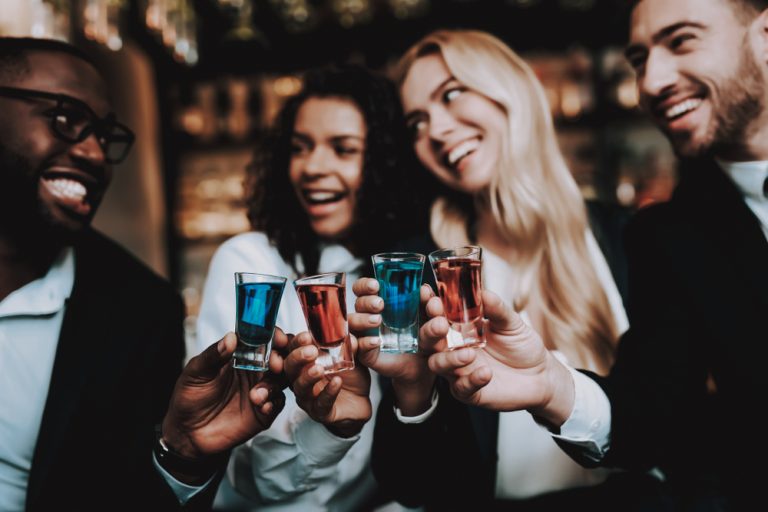Counselors may select from a menu of services that meet the specific medical, mental, social, occupational, family, and legal needs of their patients to help in their recovery. Stopping drug use is just one part of a long and complex recovery process. When people enter treatment, addiction has often caused serious consequences in their lives, possibly disrupting their health and how they function in their family lives, https://www.soldati-russian.ru/news/britanskaja_armija_pokazala_tank_gorodskogo_boja_challenger_2_tes_megatron/2023-07-25-9590 at work, and in the community. For people with addictions to drugs like stimulants or cannabis, no medications are currently available to assist in treatment, so treatment consists of behavioral therapies. Treatment should be tailored to address each patient’s drug use patterns and drug-related medical, mental, and social problems. Medications are also available to help treat addiction to alcohol and nicotine.
Addiction can happen to anyone
- This tip sheet explores climate change, hot weather, and impacts of heat on people who use medication.
- While the process may take several years, the outcome is a happier, healthier life where you have the freedom to fulfill your full potential.
- And one measure of a comprehensive substance abuse treatment program is the help it offers to enrollees to identify their interests and find and build a meaningful career path.
- Aftercare planning can begin during theadmissions process, or it can occur toward the end of an inpatient stay.
Recovery is a process of change through which people improve their health and wellness, live self-directed lives, and strive to reach their full potential. Even people with severe and chronic substance use disorders can, with help, overcome their illness and regain https://livewirerecordings.net/2024/01/29/negative-impact-of-excessive-entertainment-on-society/ health and social function. Being in recovery is when those positive changes and values become part of a voluntarily adopted lifestyle. For some people, committing to complete abstinence is not desirable or is too daunting a prospect before beginning treatment.

Center for Substance Abuse Prevention (CSAP)

Behavioral therapies help people in drug addiction treatment modify their attitudes and behaviors related to drug use. As a result, patients are able to handle stressful situations and various triggers that might cause another relapse. Behavioral therapies can also enhance the effectiveness of medications and help people remain in treatment longer. SAMHSA’s mission is to lead public health and service delivery efforts that promote mental health, prevent substance misuse, and provide treatments and supports to foster recovery while ensuring equitable access and better outcomes. No matter which pathway of recovery a person chooses, a common process of change underlies them all.
Provider & Workforce
Clinical evidence suggests that the most common causes of relapse during this stage are neglecting self-care or not attending self-help groups. While the abstinence stage of withdrawal causes mostly physical symptoms, post-acute withdrawal is very psychological and emotional. So far, there’s no consensus on the medical definition of recovery in alcohol treatment literature.
Stay Connected
The fallout of problem drinking or opioid abuse is felt in different ways by different people. It can affect or destroy relationships, derail careers, worsen a pre-existing mental health condition, and damage physical health. Each person who abuses alcohol or drugs is driven by a unique set of factors. Tailoring care to address those factors can take away the oxygen that powers substance abuse.
Practice Healthy Living
- Realistically, other factors such as location, waiting lists and insurance coveragedetermine which center you attend and what type of treatment you receive.
- Treatment and education can help adults learn techniques for handling urges and ways of accepting and managing negative emotions.
- The Stages of Change model accommodates this ebb and flow in individuals’ progress.
- Additionally, medications are used to help people detoxify from drugs, although detoxification is not the same as treatment and is not sufficient to help a person recover.
- Brains are plastic—they adapt to experience—and people can change and grow, develop an array of strategies for coping with life’s challenges and stressors, find new means of satisfaction and reward, and negotiate life ahead.
Many types of recovery support are available, and many people make use of more than one type at any time and may shift from one type of support to another as recovery proceeds and needs evolve. An increasing number of high schools and colleges offer addiction recovery resources (CRPS, or Collegiate http://guavaberry.net/musica/coleccion-cristiana/track/coleccion-cristiana-5/ Recovery Programs) for students, including mentors, workshops, dedicated lounges, and group meetings and activities. In addition, self-care is a vital foundation for a healthy new identity. At the very least, self-care should include sleep hygiene, good nutrition, and physical activity.
Addiction Treatment Options for Drugs and Alcohol

































































